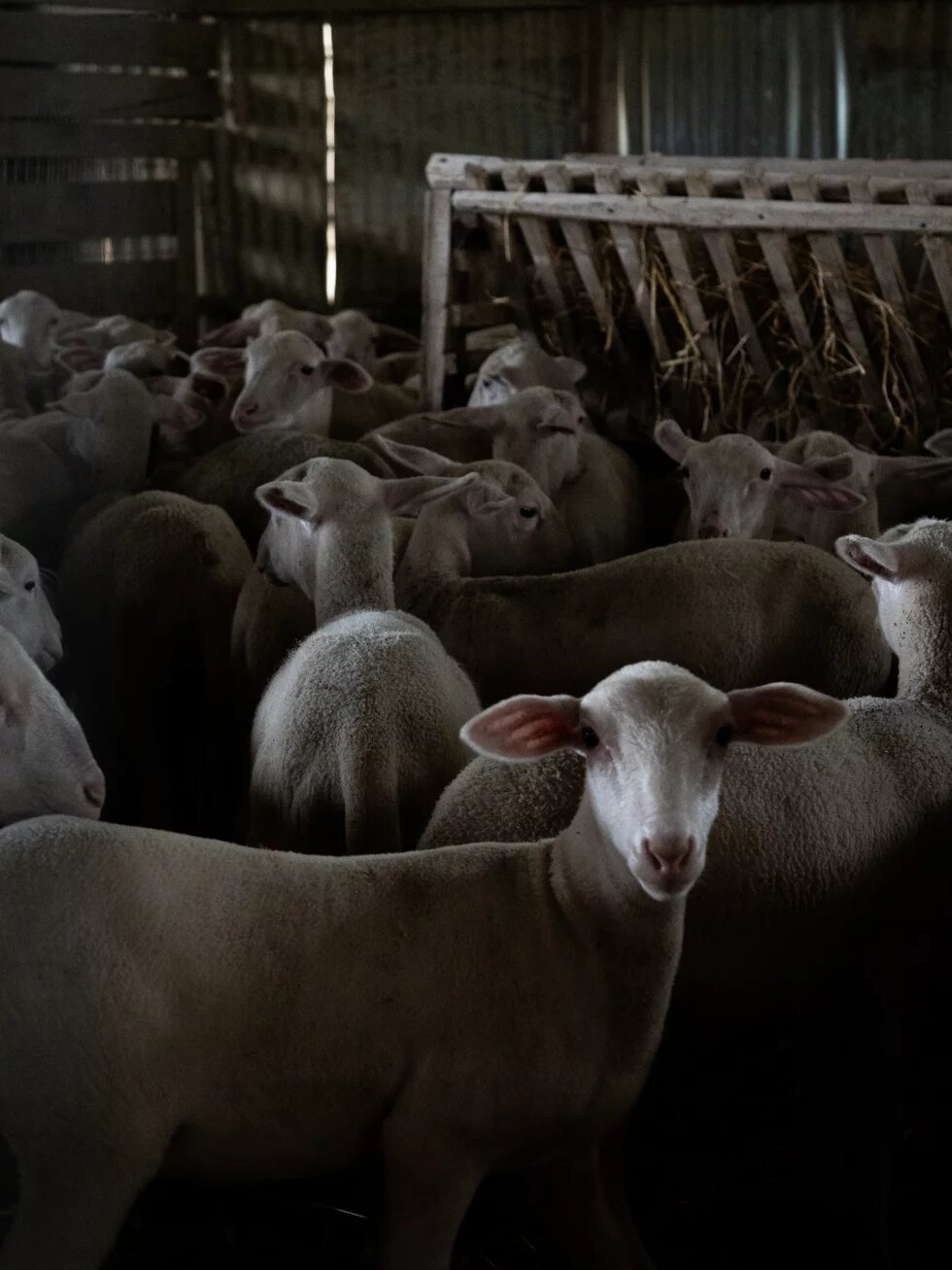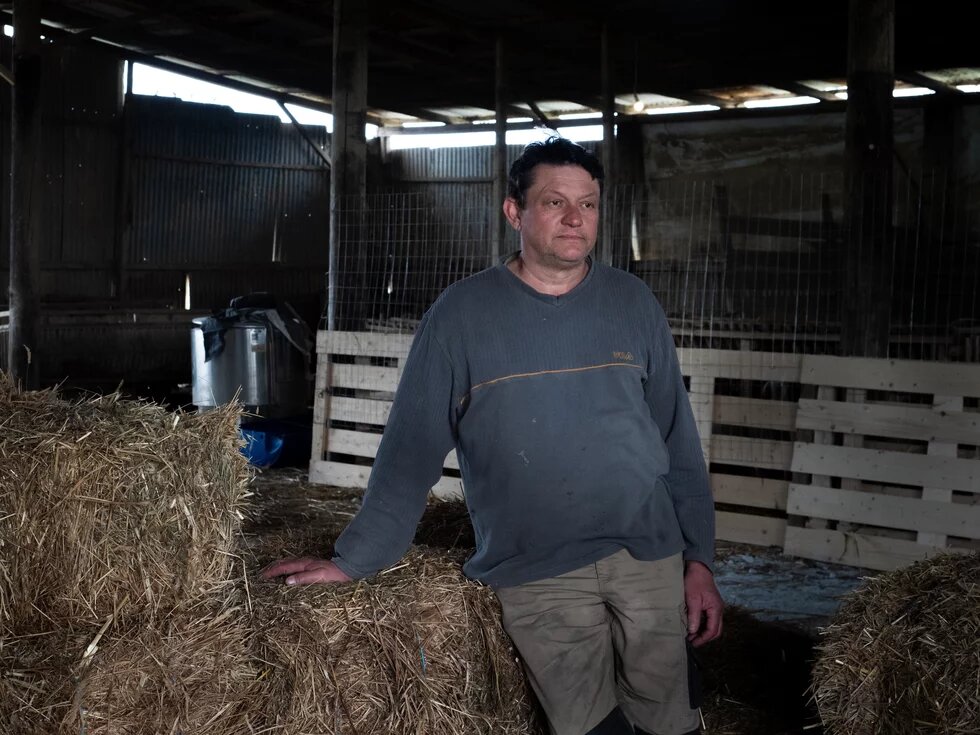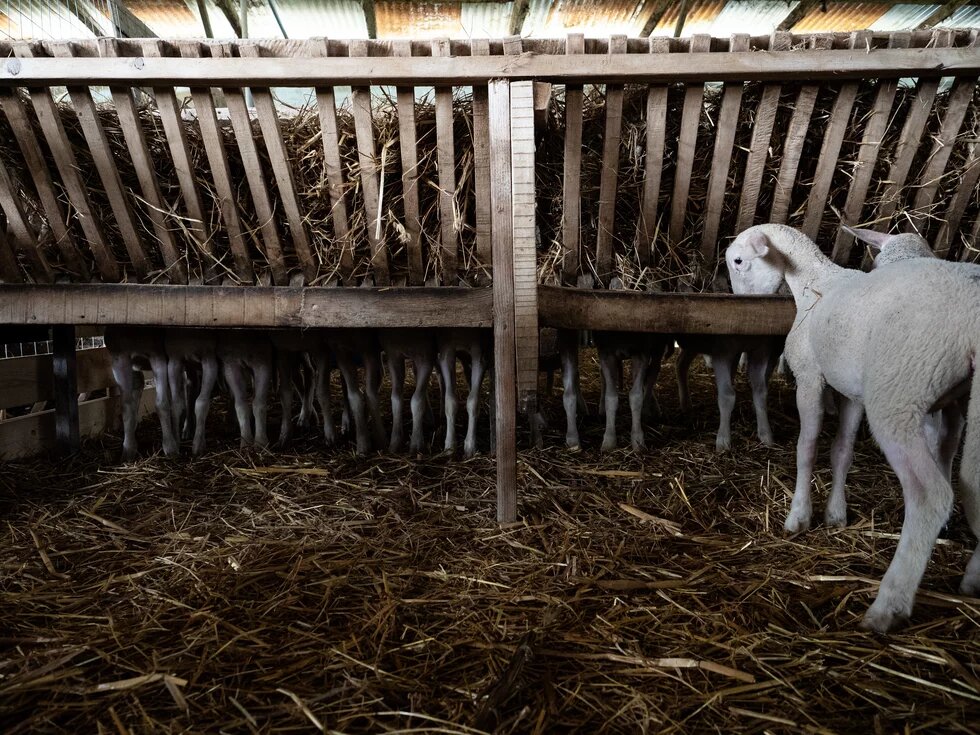

Metamorfosi, Thessaly: The lambs bleat in a rough chorus as farmer Vangelis Makris enters the dimly lit barn. He moves with deliberate steps, spreading the feed evenly. His hands, calloused and steady, work with the practiced rhythm of someone who has done this a thousand times. “This is what I do for a living,” he says. Vangelis was a man who had lived many lives. Once, he had run a restaurant in Germany as a so-called guest worker. Later, he returned home to build a life as a farmer, adapting to each role he took on. That day, a small figure trails behind him – his granddaughter, barely taller than the lambs themselves. She flops down into the straw, laughing as curious noses nudges her. She sinks her fingers into the damp wool, untroubled by the earthy smell of wet animals and mud. Outside, the rain pounds against the tin roof, a relentless drumbeat.
When Vangelis had walked into the barn a few months before, it had been a vision of ruin – a scene from a nightmare he could not wake up from. The lifeless bodies of his 300 sheep lay scattered across the straw, along with a single horse and two dogs. One sheep was hanging over the fence, as if it had tried to escape in its last desperate moments.
A flood had drowned them where they stood when, in September 2023, heavy rains swept across the Thessalian plains, submerging fields and villages and causing widespread destruction. Metamorfosi, located at one of the lowest points in the region, was hit hard as the water levels rose rapidly, leaving devastation in its wake and claiming 15 lives.
It could easily have been more had Vangelis not been home, dozing on the sofa, when he first heard it - a strange, rushing sound that did not belong in the quiet of their home. He sat up, groggy, only to feel the chill of the water lapping at his knees. By then it was coming in fast, flooding the floor in heavy, unstoppable waves. His wife scrambled to carry food supplies upstairs, preparing for the days ahead. Meanwhile, Vangelis pulled on his wetsuit, the one he usually wore for diving trips, knowing he'd need every bit of it now. The water continued to rise, reaching his waist as he moved towards the door.
In the houses around him, the sick and elderly were stranded, unable to escape the rising floodwaters. Sometimes swimming, sometimes putting one foot in front of the other against the murky grey current, he waded out and crossed the street again and again, guiding those who could not walk for themselves. In the end, he had carried twelve people, one by one, to the safety of the upper floor of his house, creating a makeshift shelter from the storm.
Now, Vangelis trudges further through the barn, scattering feed with steady hands, his thoughts weighed down by the numbers. He has received 120 euros in compensation per lost sheep – a sum barely enough to cover their worth before the flood, which had been 300 euros each, let alone now with prices rising. Starting again would require patience. It would take 10 months for the lambs to reach breeding age, and another five months for the lambs to grow. All in all, it would be more than a year before he saw the first drops of milk – before he could even think of breaking even. But that is why he had started so quickly. He knew it was going to be a long haul, and waiting would only make it longer. It would take time to get back on his feet, but at least he had started.
A few weeks later, Vangelis received 32.000 euros in compensation for damages he estimated at 120.000 euros. Yet life goes on: exactly one year after the catastrophe, he found himself dancing at his daughter’s wedding. “Once you have learned to build a life, you carry that skill within you – able to start anew, as often as needed,” he said.
